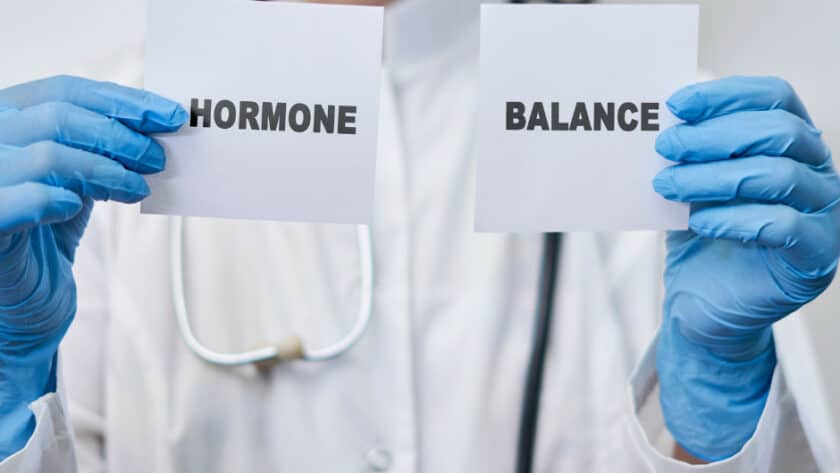Keto Diet for Individuals with Hormonal Imbalances
Hormonal imbalances can wreak havoc on your body, causing a wide range of symptoms and health issues. One popular diet that has been gaining traction in recent years for its potential benefits in balancing hormones is the ketogenic diet, or keto diet for short. In this article, we’ll explore the keto diet and how it may help individuals with hormonal imbalances. We’ll also provide specific answers and solutions to common questions people have about this topic.
What is the Keto Diet?
The ketogenic diet is a high-fat, low-carbohydrate diet that aims to shift your body’s primary fuel source from glucose (sugar) to ketones, which are produced from the breakdown of fats. This metabolic state, known as ketosis, has been shown to provide various health benefits, including weight loss, improved mental clarity, and increased energy levels. Some research also suggests that the keto diet may help balance hormones, making it a potential option for individuals with hormonal imbalances.
How Can the Keto Diet Help with Hormonal Imbalances?
There are several ways in which the keto diet may help individuals with hormonal imbalances:
1. Reducing Insulin Resistance
Insulin is a hormone that regulates blood sugar levels. When you consume a high-carbohydrate diet, your body produces more insulin to manage the increased glucose in your bloodstream. Over time, this can lead to insulin resistance, a condition in which your cells become less responsive to insulin, resulting in high blood sugar levels and an increased risk of type 2 diabetes. The keto diet, by limiting carbohydrate intake, can help reduce insulin resistance and improve insulin sensitivity, thus helping to balance this crucial hormone. A study published in the journal Nutrition & Metabolism supports this claim, showing that a low-carbohydrate, ketogenic diet can improve insulin sensitivity in individuals with type 2 diabetes (source).
2. Regulating Cortisol Levels
Cortisol is a stress hormone that, when chronically elevated, can lead to various health issues, including weight gain, mood disorders, and hormonal imbalances. The keto diet may help regulate cortisol levels by providing a stable source of energy (ketones) and reducing blood sugar fluctuations that can trigger cortisol release. A study published in the journal Psychoneuroendocrinology found that a low-carbohydrate diet can reduce cortisol levels in healthy adults (source).
3. Supporting Thyroid Function
The thyroid is a small gland in your neck that produces hormones responsible for regulating metabolism, growth, and development. Some individuals with hormonal imbalances may have an underactive thyroid, a condition known as hypothyroidism. While there is limited research on the direct effects of the keto diet on thyroid function, some studies suggest that a low-carbohydrate diet may help improve thyroid hormone levels in individuals with hypothyroidism (source). However, it’s essential to note that more research is needed in this area. And individuals with thyroid issues should consult with their healthcare provider before starting a keto diet.
4. Improving PCOS Symptoms
Polycystic ovary syndrome (PCOS) is a hormonal disorder that affects women of reproductive age. It is characterized by high levels of androgens (male hormones), insulin resistance, and irregular menstrual cycles. Some research suggests that the keto diet may help improve PCOS symptoms by reducing insulin resistance and promoting weight loss. A study published in the journal Nutrition & Metabolism found that a low-carbohydrate, ketogenic diet led to significant improvements in weight, fasting insulin, and testosterone levels in women with PCOS (source).
Common Questions and Answers about the Keto Diet and Hormonal Imbalances
Is the keto diet safe for individuals with hormonal imbalances?
The keto diet may be safe and beneficial for some individuals with hormonal imbalances. Such as those with insulin resistance, high cortisol levels, or PCOS. However, it’s essential to consult with your healthcare provider before starting a keto diet. Especially if you have a pre-existing medical condition or are taking medications.
Can the keto diet cause hormonal imbalances?
In some cases, the keto diet may cause temporary hormonal fluctuations as your body adapts to the new fuel source (ketones). However, these changes are typically short-lived and resolve as your body becomes more efficient at using ketones for energy. If you experience persistent hormonal imbalances while on the keto diet, it’s essential to consult with your healthcare provider.
How long does it take to see improvements in hormonal imbalances on the keto diet?
The time it takes to see improvements in hormonal imbalances on the keto diet can vary depending on the individual and the specific hormonal issue being addressed. Some people may notice improvements within a few weeks, while others may take several months to see significant changes. It’s essential to be patient and give your body time to adjust to the new diet.
Conclusion
The ketogenic diet may offer potential benefits for individuals with hormonal imbalances. Such as reducing insulin resistance, regulating cortisol levels, and improving symptoms of PCOS. However, it’s essential to consult with your healthcare provider before starting a keto diet. Especially if you have a pre-existing medical condition or are taking medications. By understanding the potential benefits and risks of the keto diet for hormonal imbalances, you can make an informed decision about whether this dietary approach is right for you.




